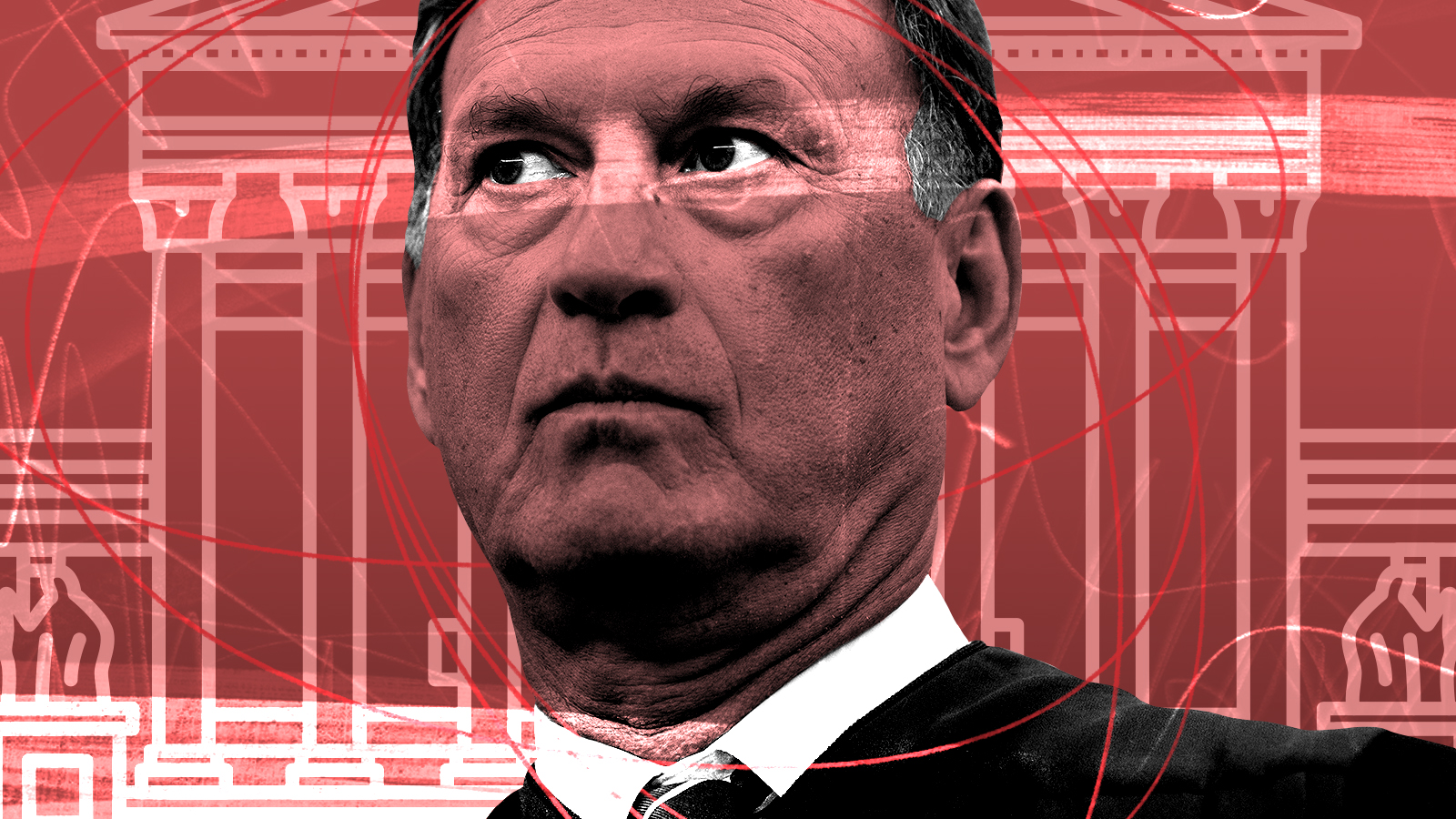Justice Alito's political case for SCOTUS transcendence of politics


A free daily email with the biggest news stories of the day – and the best features from TheWeek.com
You are now subscribed
Your newsletter sign-up was successful
Supreme Court Justice Samuel Alito stepped forward Thursday to defend the institution from its growing legion of detractors. In a speech at the University of Notre Dame, he pushed back on criticism of the court's "shadow docket" handling of high-profile cases, like its recent decision to let Texas' anti-abortion law take effect.
"The catchy and sinister term 'shadow docket' has been used to portray the court as having been captured by a dangerous cabal that resorts to sneaky and improper methods to get its ways," Alito said, taking particular aim at a recent Atlantic article he called "false and inflammatory." "That portrayal feeds unprecedented efforts to intimidate the court or damage it as an independent institution."
Alito is just the latest conservative justice to speak of the court this way. His colleagues Clarence Thomas and Amy Coney Barrett gave high-profile speeches denouncing progressive calls for reforms like court-packing and ending judicial review by denying SCOTUS is politicized. "I think we should be careful destroying our institutions because they don't give us what we want when we want it," Thomas said.
The Week
Escape your echo chamber. Get the facts behind the news, plus analysis from multiple perspectives.

Sign up for The Week's Free Newsletters
From our morning news briefing to a weekly Good News Newsletter, get the best of The Week delivered directly to your inbox.
From our morning news briefing to a weekly Good News Newsletter, get the best of The Week delivered directly to your inbox.
There's an irony here. It's clear the conservative justices want to be seen as above politics. The court isn't "a bunch of partisan hacks," Barrett said. But to make their case, the justices have stepped away from the bench and into the public square, defending the status quo against impertinent, often partisan critics. That is an inherently political act.
In past eras, the court has benefited from a veil of mystery. We don't often see (and only relatively recently have been able to hear) the justices at work: There are no cameras in the courtroom; deliberations take place behind closed doors; and printed opinions are usually handed down with little or no comment, as if from on high.
These political defenses let the veil slip. "If Alito is concerned about public perceptions of the Supreme Court," MSNBC's Steve Benen observes, "perhaps he should stop delivering speeches like these that adversely affect public perceptions of the Supreme Court." If justices want to be aloof from politics, they should stay aloof from politics.
Or perhaps that distance can't be reclaimed. In December, SCOTUS will hear a Mississippi case that could potentially overturn Roe v. Wade. The reaction will be very, very political — and the court's future likely will be shaped less by defensive speeches than by how it steers the law in cases like this.
A free daily email with the biggest news stories of the day – and the best features from TheWeek.com
Joel Mathis is a writer with 30 years of newspaper and online journalism experience. His work also regularly appears in National Geographic and The Kansas City Star. His awards include best online commentary at the Online News Association and (twice) at the City and Regional Magazine Association.
-
 Local elections 2026: where are they and who is expected to win?
Local elections 2026: where are they and who is expected to win?The Explainer Labour is braced for heavy losses and U-turn on postponing some council elections hasn’t helped the party’s prospects
-
 6 of the world’s most accessible destinations
6 of the world’s most accessible destinationsThe Week Recommends Experience all of Berlin, Singapore and Sydney
-
 How the FCC’s ‘equal time’ rule works
How the FCC’s ‘equal time’ rule worksIn the Spotlight The law is at the heart of the Colbert-CBS conflict
-
 Big-time money squabbles: the conflict over California’s proposed billionaire tax
Big-time money squabbles: the conflict over California’s proposed billionaire taxTalking Points Californians worth more than $1.1 billion would pay a one-time 5% tax
-
 Supreme Court upholds California gerrymander
Supreme Court upholds California gerrymanderSpeed Read The emergency docket order had no dissents from the court
-
 Did Alex Pretti’s killing open a GOP rift on guns?
Did Alex Pretti’s killing open a GOP rift on guns?Talking Points Second Amendment groups push back on the White House narrative
-
 Washington grapples with ICE’s growing footprint — and future
Washington grapples with ICE’s growing footprint — and futureTALKING POINTS The deadly provocations of federal officers in Minnesota have put ICE back in the national spotlight
-
 Trump’s Greenland ambitions push NATO to the edge
Trump’s Greenland ambitions push NATO to the edgeTalking Points The military alliance is facing its worst-ever crisis
-
 Why is Trump threatening defense firms?
Why is Trump threatening defense firms?Talking Points CEO pay and stock buybacks will be restricted
-
 The billionaires’ wealth tax: a catastrophe for California?
The billionaires’ wealth tax: a catastrophe for California?Talking Point Peter Thiel and Larry Page preparing to change state residency
-
 How robust is the rule of law in the US?
How robust is the rule of law in the US?TODAY’S BIG QUESTION John Roberts says the Constitution is ‘unshaken,’ but tensions loom at the Supreme Court
